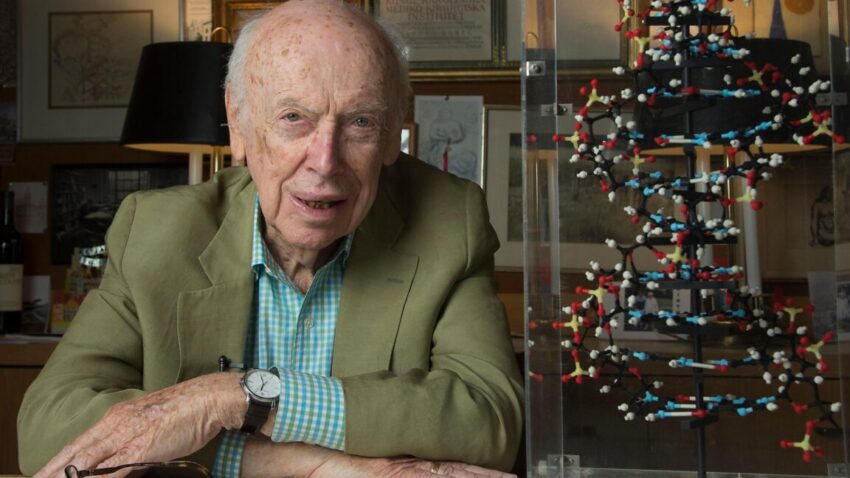
james watson who helped unravel dna s James Dewey Watson, a pivotal figure in the discovery of DNA’s double-helix structure, has passed away at the age of 97.
james watson who helped unravel dna s
Life and Legacy of James Watson
James Watson, born in Chicago in 1928, became a central figure in molecular biology and genetics. He gained international acclaim in 1953 at the young age of 25 when he, alongside British scientist Francis Crick, elucidated the molecular structure of DNA. This groundbreaking work laid the foundation for modern genetics and molecular biology, earning them the Nobel Prize in Physiology or Medicine in 1962, alongside Maurice Wilkins.
The Discovery of DNA’s Double Helix
The discovery of the double-helix structure of DNA was a monumental achievement in the scientific community. Watson and Crick’s model demonstrated how genetic information is stored and transmitted. Their work was not conducted in isolation; it was built upon the foundational research of several scientists, most notably Rosalind Franklin. Franklin’s X-ray diffraction images of DNA, particularly Photo 51, provided critical insights that enabled Watson and Crick to propose their helical model.
Unfortunately, Franklin’s contributions were not fully recognized during her lifetime. The image that played a crucial role in the discovery was shared with Watson and Crick without her knowledge or consent by Maurice Wilkins, a colleague at King’s College London. This oversight has sparked ongoing discussions about the recognition of women in science and the importance of equitable credit in collaborative research.
The Human Genome Project
In addition to his work on DNA structure, Watson played a significant role in launching the Human Genome Project in 1990. This ambitious international research initiative aimed to map all the genes in the human genome, which consists of approximately 3 billion DNA base pairs. The project was a monumental undertaking that sought to provide a comprehensive understanding of human genetics, with implications for medicine, biology, and anthropology.
The Human Genome Project has had far-reaching consequences, leading to advances in personalized medicine, genetic testing, and our understanding of genetic diseases. Watson’s involvement in this project underscored his commitment to advancing the field of genetics and his belief in the potential of genetic research to improve human health.
Controversies and Criticism
Despite his scientific achievements, Watson’s legacy is marred by numerous controversies stemming from his public statements and views. Over the years, he has made several remarks that have been widely criticized as racist, sexist, and offensive. These comments have overshadowed some of his scientific contributions and sparked debates about the intersection of science and ethics.
Racist and Sexist Remarks
Watson’s controversial statements include assertions about the intellectual capabilities of different races, which have been condemned as scientifically unfounded and harmful. In interviews and public appearances, he has suggested that there are inherent differences in intelligence among racial groups, a claim that has been debunked by geneticists and social scientists alike. Such views have led to widespread backlash and have prompted discussions about the responsibilities of scientists in addressing societal issues.
Additionally, Watson has made comments regarding women in science that have been criticized as sexist. His remarks have often perpetuated stereotypes about women’s roles and capabilities in scientific fields, further complicating his public image. These controversies have raised questions about how society should reconcile the scientific contributions of individuals with their personal beliefs and statements.
Impact on Scientific Community
Watson’s controversial views have sparked discussions within the scientific community about the importance of ethics in research and public discourse. Many scientists have called for a reevaluation of how contributions are recognized and how scientists engage with societal issues. The backlash against Watson’s statements has also highlighted the need for greater diversity and inclusion in the scientific community, as well as the importance of fostering an environment where all voices are heard and respected.
Personal Life and Later Years
Watson’s personal life was marked by both professional triumphs and personal challenges. He married Elizabeth Watson in 1968, and the couple had two children, Duncan and Katherine. Throughout his life, Watson remained active in scientific research and education, serving as the director of the Cold Spring Harbor Laboratory from 1968 to 1994. Under his leadership, the laboratory became a leading center for molecular biology research.
In his later years, Watson faced health challenges, including hospitalization for an infection prior to his death. His passing was confirmed by his son, Duncan, who noted that Watson died in a hospice in East Northport, New York, on Long Island. Cold Spring Harbor Laboratory also issued a statement confirming his death, acknowledging his profound impact on the field of genetics and molecular biology.
Reactions to Watson’s Death
The announcement of Watson’s death has elicited a range of reactions from the scientific community and the public. Many have expressed their condolences and recognized his contributions to science, while others have reiterated the importance of addressing the controversies surrounding his views.
Tributes from the Scientific Community
Numerous scientists and institutions have paid tribute to Watson, acknowledging his role in shaping modern genetics. Some have highlighted the significance of his work on DNA structure and the Human Genome Project, emphasizing the lasting impact of his contributions on scientific research and medical advancements.
However, there are also voices within the scientific community that caution against glorifying Watson without acknowledging the full scope of his legacy. These individuals stress the importance of recognizing both the scientific achievements and the ethical implications of his statements, advocating for a more nuanced understanding of his impact on science and society.
Public Discourse on Legacy
The discussions surrounding Watson’s legacy have prompted broader conversations about how society remembers and honors figures in science. As the scientific community grapples with issues of diversity, equity, and inclusion, Watson’s life and work serve as a case study in the complexities of reconciling scientific achievement with personal beliefs and societal impact.
Conclusion
James Watson’s death marks the end of an era in molecular biology and genetics. His groundbreaking work on the structure of DNA and his role in the Human Genome Project have left an indelible mark on the scientific landscape. However, his controversial statements and views serve as a reminder of the ethical responsibilities that accompany scientific inquiry. As the scientific community continues to evolve, the legacy of James Watson will undoubtedly remain a topic of discussion, reflecting the intricate interplay between science, ethics, and society.
Source: Original report
Was this helpful?
Last Modified: November 8, 2025 at 5:36 am
3 views















